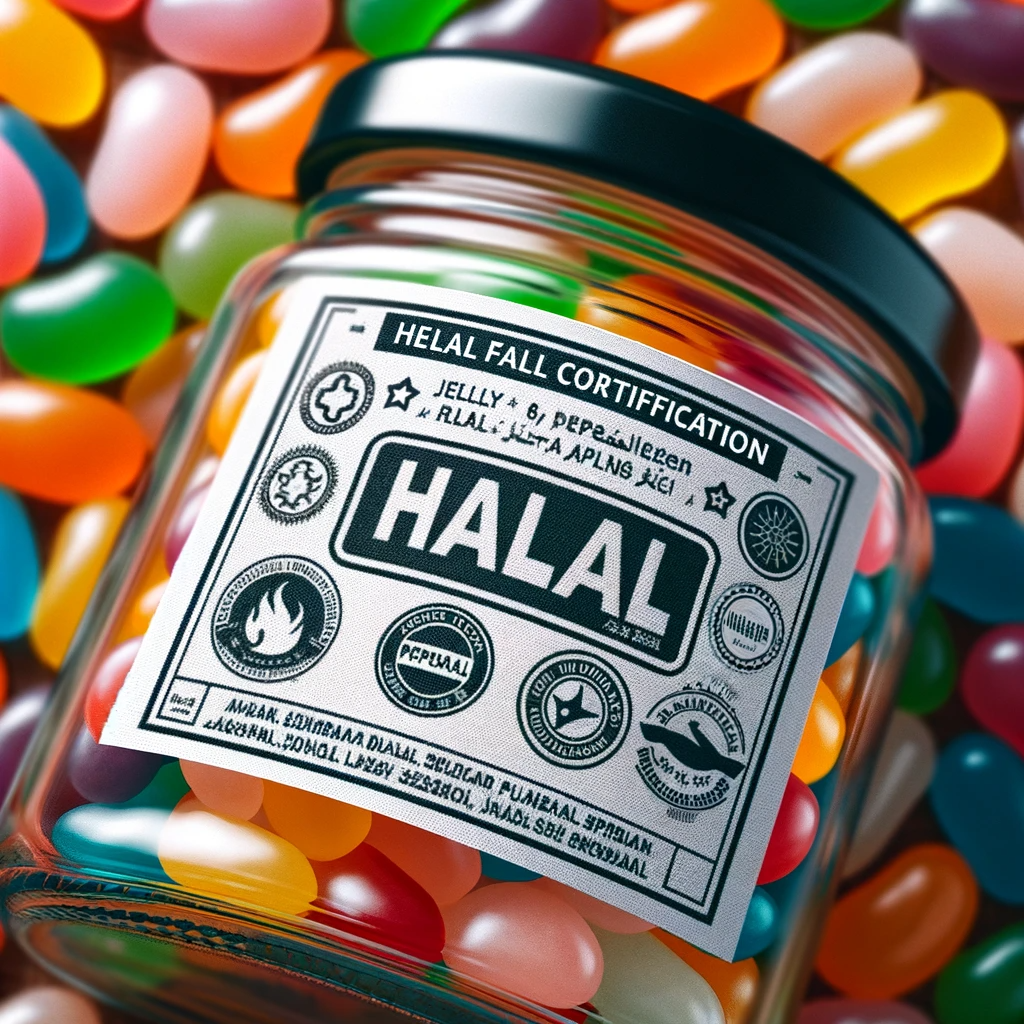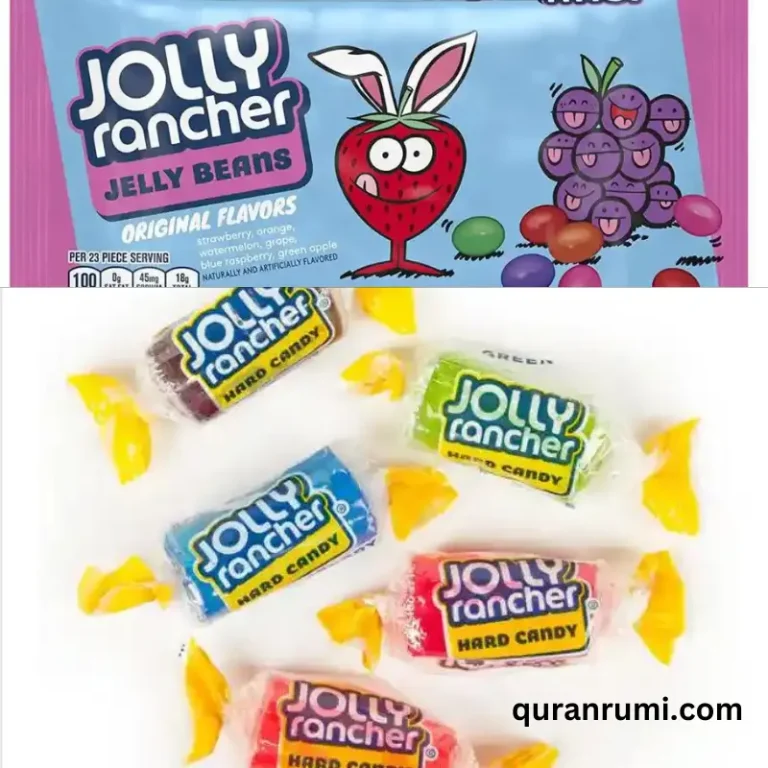Are Jelly Beans Halal?
Jelly beans are a popular candy in many parts of the world. Their small size, vibrant colors, and variety of flavors make them an iconic treat. But for Muslims and other groups, an important question arises: are jelly beans halal?
What are Jelly Beans?
Jelly beans are a type of soft candy with a shell made from sugar and corn syrup. The inside is filled with sweeteners and flavorings. Some of the most popular jelly bean flavors are:
- Fruit flavors like cherry, orange, lemon, lime, apple
- Spices like cinnamon and licorice
- Sweet flavors like buttered popcorn and cotton candy
Traditional jelly beans have a glossy hard outer shell. Gourmet jelly beans tend to have a softer chewy shell and exotic flavors like piña colada, strawberry cheesecake, and peach.
The size and shape of jelly beans can vary, but most are around 2 cm long with an oval or round shape. Their small bite-sized form makes them an easy, grab-and-go candy.
Jelly beans likely originated as a variation of Jordan almonds in the 1800s. Their current form evolved from a candy called jelly babies. Jelly beans became especially popular in the U.S. after gaining attention from President Reagan in the 1980s.
Today, over 16 billion jelly beans are produced for Easter alone each year! Their popularity endures because of their appealing flavors, colors, and textures.
What Makes Food Halal?

Halal is an Arabic word that means permissible or lawful. When applied to food, halal certification means that the food’s source, processing, and handling meets Islamic dietary guidelines.
For a food to be halal, it must follow these key rules:
Permitted Ingredients
- Meat and poultry must come from animals that are halal themselves like cows, sheep, goats, ducks, chicken, and more.
- No pork or pork by-products are allowed.
- Alcohol, blood, carnivorous animals, and birds of prey are also prohibited.
Humane Slaughter
- Livestock and poultry must be slaughtered according to Islamic ritual procedure known as zabihah. This involves killing with a sharp knife while invoking Allah’s name to minimize suffering.
Safe and Hygienic
- Food must be safe, wholesome, and stored/transported hygienically
- No cross-contamination from non-halal foods or use of containers that held non-halal items
- Processes must follow food safety guidelines for hazard prevention
No Contamination
- Halal food cannot be prepared or processed using equipment contaminated by haram (forbidden) foods like pork
- No contact during processing, storage, or transportation with prohibited items
With these criteria in mind, let’s evaluate if jelly beans qualify as halal.
Are Jelly Beans Halal: Ingredient Analysis
We need to check if all jelly bean ingredients meet halal requirements. Major jelly bean components include:
Sugar
Most jelly beans get their sweetness from regular granulated sugar which comes from sugarcane. Sometimes corn syrup is also used. Since these sweeteners don’t contain any animal products, they are halal.
Starch
Natural starches from rice and tapioca sources serve as thickening agents. Both rice and tapioca are halal ingredients.
Coloring
Vibrant colors come from artificial colors, lakes, natural colors (like annatto seed), and synthetic dyes. None originate from animal sources.
Flavoring
Natural flavors like fruit juices and artificial flavorings create tastes like buttered popcorn. As long as no alcohol or pork derivatives are used, flavorings do meet guidelines.
Corn Syrup
Corn syrup gives jelly beans their soft chewy texture. This plant-based syrup is halal.
Let’s summarize the common jelly bean ingredients and their halal status:
| Ingredient | Halal Status |
|---|---|
| Sugar | Yes |
| Starch | Yes |
| Coloring | Yes |
| Flavoring | Yes* |
| Corn syrup | Yes |
*as long as no alcohol or pork derivatives are used
This analysis shows that most basic jelly bean components are halal. The main exception would be certain flavorings. As long as companies avoid non-halal flavorings, jelly beans seem to meet Islamic dietary guidelines.
Some Muslims also avoid gelatin-containing foods. Since jelly beans are gelatin-free, this isn’t a concern.
Now let’s explore how jelly beans are manufactured and handled.
Jelly Bean Processing and Handling
We established primary jelly bean ingredients as generally halal. However, improper handling, storage, preparation or processing could still contaminate the final product.
Here are some ways jelly beans get processed and handled between production and packaging:
- Factory equipment – The machinery used should only process non-meat, halal foods to prevent cross-contamination.
- Personnel – Human handlers should follow sanitary practices and avoid contact between halal and non-halal ingredients.
- Storage containers – Jelly beans awaiting packaging shouldn’t be held in former pork containers.
- Transportation methods – No cross-contamination should occur during transit vehicles, storage bins, etc.
As long as facilities avoid these contamination risks, jelly beans remain halal through processing. Some Muslim religious authorities even visit factories to certify halal compliance.
Can Jelly Beans Gain Halal Certification?
Official halal certification requires submitting to inspection by an approved halal organization. The organization sends auditors to verify:
✔ Ingredients are halal
✔ Follow approved slaughter methods
✔ Avoid cross-contamination
✔ Adhere to hygiene and food safety guidelines
If everything meets standards, the food can receive certified halal status. The Islamic Food and Nutrition Council of America (IFANCA) is one such U.S. certifying body. They have no published rulings regarding jelly bean certification a
t this time.
So while jelly beans can technically meet halal criteria, official certification may require regulatory approval on a brand-by-brand basis. Concerned Muslims should check with their religious authority to verify if a given jelly bean product is considered halal in their practice.
Are Jelly Beans Vegan?
Aside from halal considerations, many also wonder if jelly beans qualify as vegetarian or vegan. Since the core ingredients lack animal products, jelly beans are vegetarian by nature.
However, some companies may add non-vegan ingredients like confectioner’s glaze or egg whites when making gourmet beans. So vegans would need to evaluate brands individually to see if they use any animal derivatives.
The Verdict: Are Jelly Beans Halal?
In summary, standard jelly beans likely meet halal guidelines based on these key findings:
✅ Primary ingredients like sugar, corn syrup, colors, and starches are halal
✅ Main production/handling processes don’t risk contamination
✅ No published ban from halal certification bodies
While official certification may require a brand-specific review, basic jelly beans avoid major prohibited criteria. Their sugar-based nature and lack of animal-products make them an inherently halal-friendly food.
Of course, certain flavors and recipes could still use non-halal ingredients. Muslims should check labels and contact manufacturers to ask about questionable flavor sources, alcohol usage, shared equipment with potentially contaminating foods, and other concerns that could impact halal status.
So long as jelly bean makers avoid these pitfalls, jelly beans can earn halal compliance to satisfy lovers of these colorful little candies!








